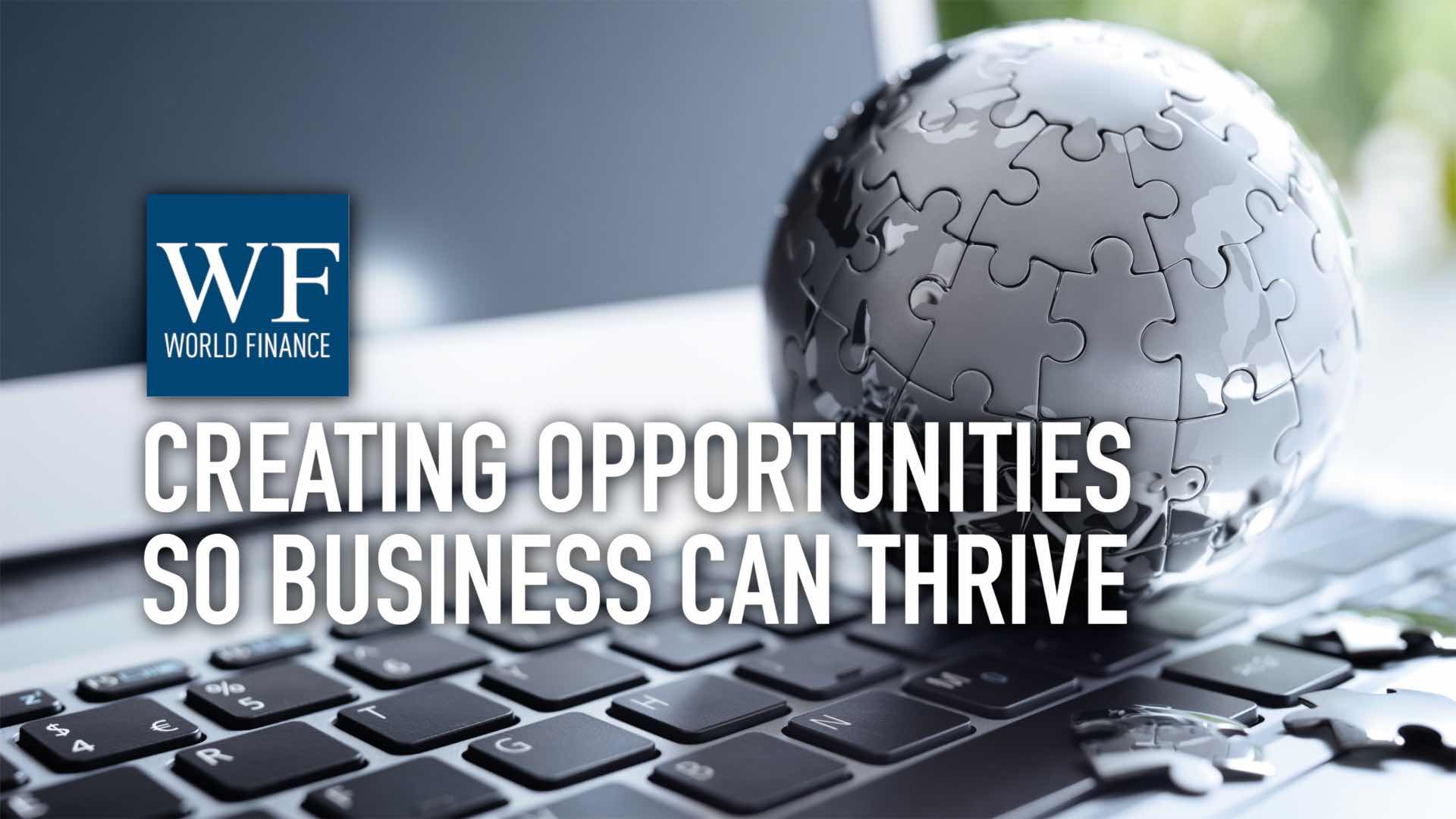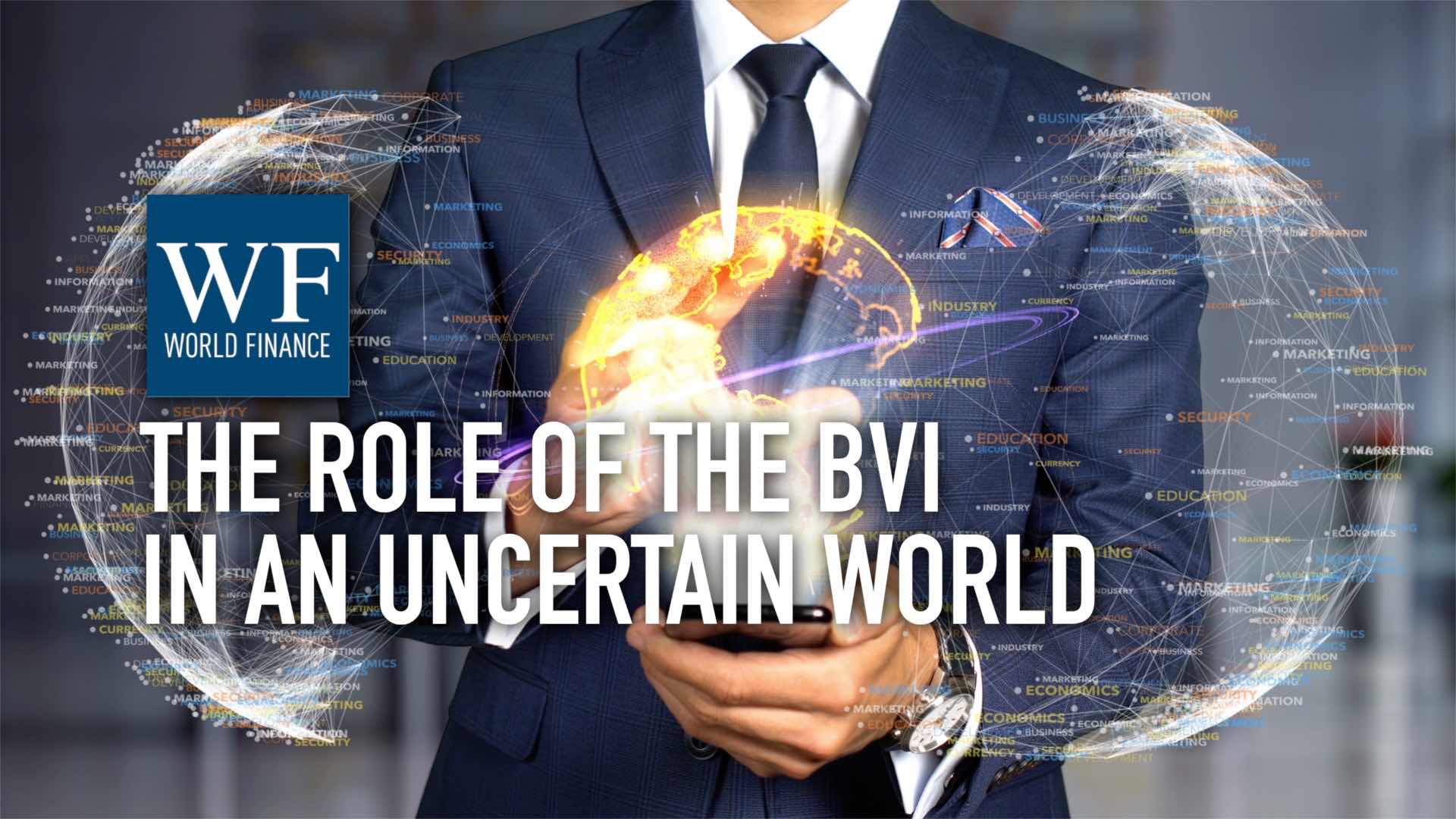How BVI fosters entrepreneurship with its fintech regulatory sandbox
'We've worked very closely with the Financial Services Commission to disentangle regulations,' says Simon Gray
Related:
Transcript
The last year has shown how truly dependent we all are on smooth international supply chains and the business structures that enable frictionless, cross-border trade. Simon Gray is Global Head of Business Development and Marketing for BVI Finance; he explains how the British Virgin Islands has been helping to create our modern global village for the last 36 years, and how the BVI is continuously updating and upgrading its offering to foster entrepreneurship.
You can also watch the second half of this conversation with Simon Gray, where he discusses the ways the BVI is innovating in funds and trusts.
World Finance: Simon, what role has the BVI played in creating our modern global village?
Simon Gray: The role has been very significant. It really began about 35, 36 years ago with the introduction of the International Business Companies Act; and that was extremely innovative and flexible at the time. But we continue to be responsive to business needs and changes globally. So we tend to always try to benchmark with the best. We try to seek out opportunities where they maybe haven’t been considered for whatever reason. And we try to capitalise on that, to the advantage of our stakeholders.
And perhaps a good example of that with the global village is that we do now represent interests in the four corners of the world. And an independent report through Capital Economics indicated or advised that two million jobs were created globally as a consequence of BVI mediated finance, and we contributed $1.5trn to the global economy. So we always try to punch above our weight.
World Finance: I think there is a broad perception that IFC structures are kind of the domain of enormous multinationals, but they are particularly important in helping young entrepreneurs or small businesses to grow internationally.
Simon Gray: Oh absolutely. And you’re right, we do have a number of listed entities – I think there’s about 140 of them. But we have many, many more thousands which are very much smaller operations.
Entrepreneurship is very much something that we’ve always wanted to attract, and we continue to attract. And in the past four years we introduced the Microbusiness Act to help small entrepreneurs. Most recently there’s been our fintech initiative, and our regulatory sandbox, which we introduced last year.
World Finance: Tell me more – what is your fintech regulatory sandbox? Who is it for, what does it achieve, and how has it been performing so far?
Simon Gray: Well it was actually introduced in the summer of last year, and that was not by any means the first globally. But the approach we’ve always taken is: look, and learn, and listen from others, and hopefully improve.
It’s really targeted at the young entrepreneurial individuals who wish to create a new initiative in the fintech space. And we’ve worked very closely with the Financial Services Commission to disentangle some of the regulations that would have been required normally for a period of time while they sit in the sandbox.
Obviously there’s no risk to consumers, because they’re in the laboratory at this point. And at such time as they leave the sandbox, the condition absolutely is they have to have full compliance. There are certain rules that are non-negotiable – there’s no way we’re going to compromise on anti-money laundering or counter-terrorist financing. But for the most part it’s managed to attract a great deal of business. So that is very much the spirit of entrepreneurship that we continue to propagate.
World Finance: And how do you stay agile and adaptive while still maintaining a strong regulatory framework?
Simon Gray: Well I’ve said we try never to be complacent; but we also recognise humility. It’s very important to understand that there are amazing competitors out there, and rather than fear them, I respect them. Hopefully they respect us as well.
But by benchmarking, by networking, we bounce ideas and thought leadership around. And working together, we hope we can price things slightly more competitively. But by working together we think it’s for the good of the overall global industry.

 BVI Finance CEO: ‘We create opportunities so that businesses can thrive’
BVI Finance CEO: ‘We create opportunities so that businesses can thrive’ ‘Globalisation is changing, and the role of the BVI will be more important than ever’
‘Globalisation is changing, and the role of the BVI will be more important than ever’
